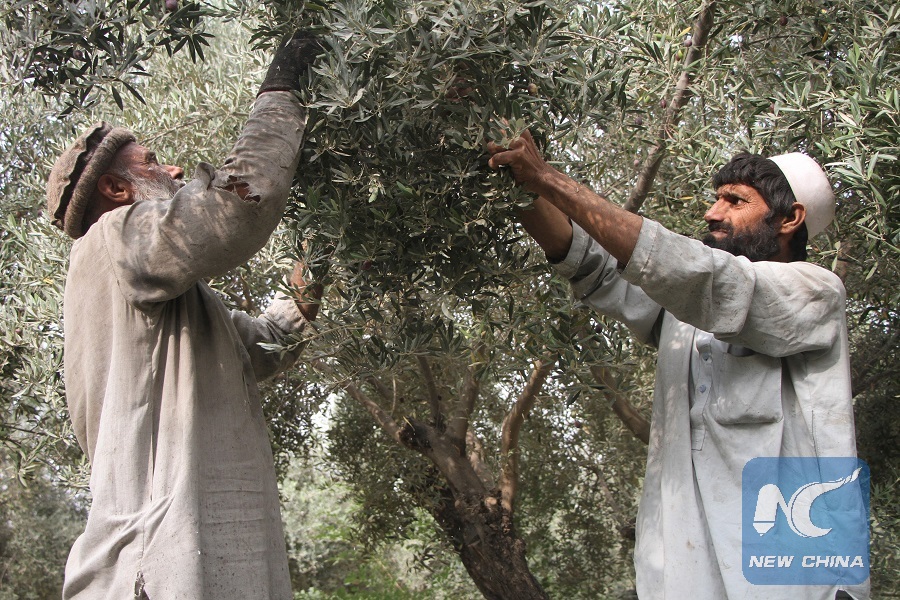
Afghan farmers collect olives at an olive garden in Nangarhar province, Afghanistan, Nov. 13, 2017. (Xinhua/Rahman Safi)
by Abdul Haleem
JALALABAD, Afghanistan, Nov. 27 (Xinhua) -- In Afghanistan's eastern Nangarhar province where many farmers are still growing opium poppies and producing drugs, some have dared to revive the war-damaged olive gardens to make them the source of income.
"In fact our olive products in past years was zero, but due to our tireless efforts and the support of the ministry for agriculture to the olive gardens in Nangarhar province, we have collected 1,200 tons olive fruits," director of olive gardens in the province, Ghulam Hazrat Abdul Rahimzai told Xinhua.
The olive gardens' production would increase to 1,600 tons in the coming months, he said optimistically.
To increase the olive production, local authorities are planning to plant more olive trees to provide more job opportunities for local people.
"Work for reviving the olive gardens in Nangarhar to raise olive products have provided job opportunities for 870 people," Rahimzai said.
Promoting olive gardens can also replace opium poppies in the eastern Nangarhar province and adjoining areas, he noted.
"Last year, Afghanistan's olive was displayed in an exhibition in Dubai and was highly welcomed by many visitors from different countries," Rahimzai said with pride.
"Olive fruit and olive oil in Nangarhar have gotten popularity among Afghans as people from other provinces come here to buyolive products," Mujib Rahman, an olive oil seller, told Xinhua recently.
According to local official Mohammad Musa Isazai, Nangarhar is the only province in Afghanistan that has olive gardens andolive processing factories.
At present there are two olive processing factories in the provincial capital Jalalabad, with the first one processing net oil and the second producing olive pickle.
"We produce high quality olive oil and olive pickle, and I am sure that the people around the world would prefer to buy ourolive products if we were able to increase our reap and export to foreign countries," Isazai said with confidence.

